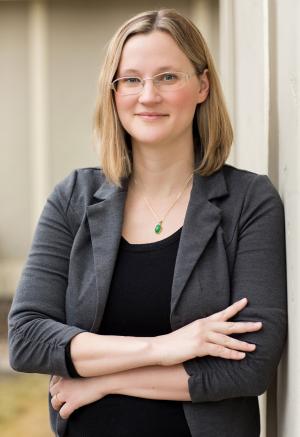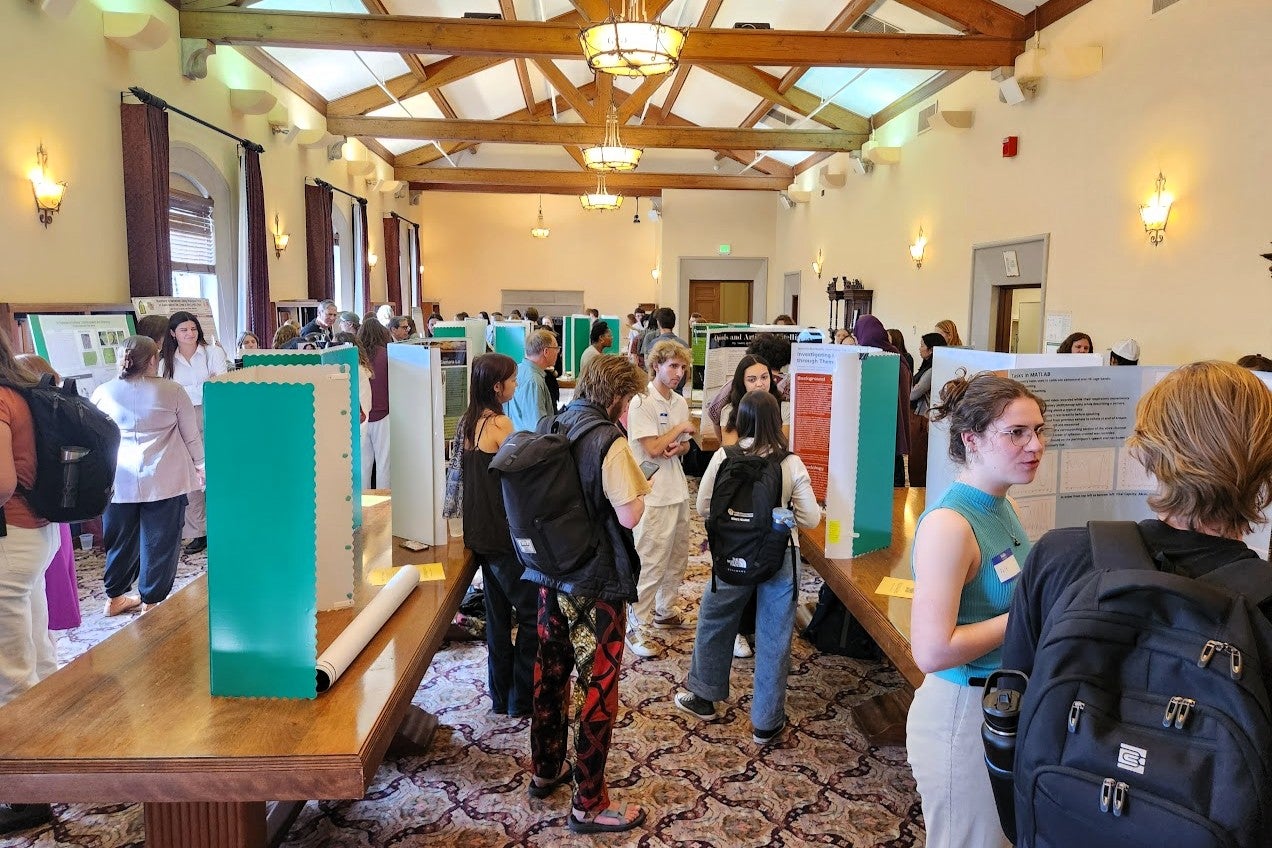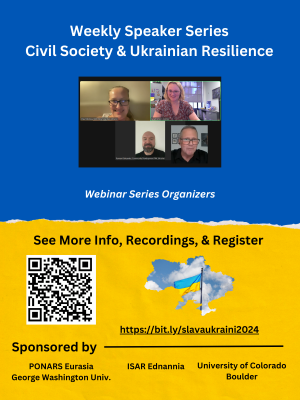Five questions for Sarah Wilson Sokhey
Sarah Wilson Sokhey, Ph.D., is an associate professor in the Department of Political Science at CU Boulder, where she also is the founding director of the Studio Lab for Undergrad Research. It matches undergraduate students with faculty projects, paying them to work with faculty mentors. The lab also hosts social events and professional training opportunities.

Sokhey’s research focuses on the relationship between politics and economics, emphasizing social policies including pensions and higher education.
Last year, she was named to the latest cohort of President’s Teaching Scholars at CU.
In her free time, you’ll find her rooting for her kids at their basketball, soccer and Little League games. “I also read a lot,” she said, “and every once in a while, I do yoga and swim.”
1. How did your higher ed path lead to CU Boulder, and what do you enjoy most about life on the campus?
I always hoped that I would be able to go into academia. I went straight from college at The Catholic University of America in Washington, D.C., to a Ph.D. program at The Ohio State University. And I was extremely fortunate that my second job offer was at the University of Colorado, where I’ve been since 2009. I’ve had several opportunities to take other jobs, but I’ve been very happy here – the students, faculty and intellectual climate are incredible – and I’ve always chosen to stay.
I think the students are the most interesting and inspiring part of campus life. I love seeing what students organize and are involved in and how they work to shape the university, our community and the world. CU students are very globally connected and passionate about many issues.
2. You are the founding director of the Studio Lab at CU Boulder. What is the lab’s purpose, and how did it come about?
I was inspired to create Studio Lab by teaching undergraduates and realizing that many wanted to have stronger connections with faculty, but didn’t know where to start. Initially, I told students to come talk to me if they were looking for someone to work with so I could help them find someone. Then I thought that there was a more efficient way to do it. I could just ask students to sign up and tell me if they were interested in finding a mentor, and I could ask potential mentors to tell me if they were interested in working with students. That was where I got the idea to start Studio Lab.
Studio Lab matches undergraduate students with mentors and pays students an honorarium to work with their mentor on a research or creative project. Any undergraduate student at CU is eligible to apply. Our mentors propose projects and include any faculty member in any unit in Arts and Sciences, plus researchers at the Institute of Behavioral Science.
Studio Lab has been a very rewarding program to create and build at CU. Studio Lab started as a small pilot program in the political science department in the summer of 2019 and officially launched in January 2020, right before the COVID-19 pandemic started. Since then, it has expanded to include projects from the entire College of Arts and Sciences. We have everything from projects on biochemistry to the social sciences to humanities to creative projects like art installations. Students work with their mentor for about five hours a week for 15 weeks of the semester and receive an honorarium of $1,200 per semester.
We have a big end-of-year reception and poster session extravaganza. Students will present posters based on the work they’ve done in Studio Lab this year. And this year, we’re inviting guests from Drexel University, where they set up a program based on the Studio Lab model. It’s a great event and a lot of fun to see what students and mentors have been doing.
I will keep working with Studio Lab to make it the best program it can be. Connecting students with mentors is my passion.

3. What does it mean to you to be named a President’s Teaching Scholar at CU?
It was a tremendous honor. I feel very privileged to be included in this impressive group of faculty who regularly meet and advise the CU president about teaching and education on all of our campuses. Being a part of this gives me ideas, inspiration and support for working on what’s possible at CU and in higher education.
4. A focus of your teaching and research is the connection between politics and economics. What first sparked your interest in this area?
My first major political memory was the collapse of the Soviet Union when I was 10 years old. My family never talked about politics, but they talked about that, and I was fascinated that there were all these new countries – not really new, of course, but I was 10 and that’s what I thought!
Ever since then, I’ve been interested in that region of the world and in how big political and economic upheavals change countries. When I was 10, I cut out the new map of the post-Soviet region from my local newspaper in Virginia. In high school, I joined the debate team and got to spend a year debating foreign policy with Russia. I may have been the only kid at my school who got a subscription to Foreign Affairs. And I’m still fascinated by this part of the world and how political and economic trends shape our world.
My research today focuses almost exclusively on Ukraine, because Ukraine’s fight to maintain its independence, democracy and safety are vital for the world. A renowned Ukrainian historian, Serhii Plokhy, has rightly called Ukraine “the gates of Europe.” Ukraine matters for Europe, but also for many other countries that get things like grain exports from the country. If Ukraine falls, there are major political and economic consequences for countries around the world.
My academic research focuses on how local governments are functioning during wartime. I also study civic and community engagement, especially among young people. I’m working with Ukrainian partners on a civic engagement education program called Civic Embers, which connects students in Ukraine and the U.S. Students work with local partners to develop community projects and get ideas and inspiration from each other in virtual exchange meetings.

Since 2023, I have been a co-organizer of a webinar series, “Civil Society and Ukrainian Resilience,” featuring Ukrainian guests. Olga Nikolska, Roman Oleksenko and Geoffrey Glenn are based in Ukraine and also organized the series.
In fall 2024, I taught a course on Ukrainian Politics for the first time. The students were very enthusiastic and engaged in the course and I hope to teach that again.
5. This is a tumultuous time in national politics. How is your teaching and research affected by the current climate?
It’s hard to think of a way my teaching and research are not affected by the current political climate. We really are in a time of unprecedented challenges and changes for higher education, for the United States in general, and for U.S. foreign relations.
My first priority in teaching and research during this time is to support students, especially those here at CU and students in Ukraine. Our youth deserve all the support we can give them right now. I think this is a very challenging time to be a college student. Today’s college students have lived through a global pandemic, multiple wars erupting around the world and very deep political polarization and turbulence in the United States.
Everyone doesn’t have the same problems, of course. People are affected very differently by the current global and national climate, and some are much more vulnerable than others. But I want college students today to know that there are faculty who see the significant challenges they are facing and that we are there for them.

